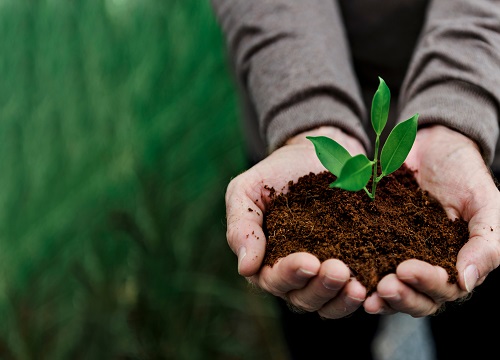PhD in Agronomy: Introduction, Admission, Registration, Eligibility, Duration, Fees, Syllabus 2024

Introduction:
A Ph.D. in Agronomy is a prestigious and rigorous academic pursuit that delves deeply into the science and practice of agricultural crop production and soil management. Combining elements of biology, chemistry, ecology, and environmental science, this advanced degree program equips students with the knowledge and skills needed to address complex challenges in modern agriculture.
At its core, agronomy seeks to optimize crop production while preserving natural resources and minimizing environmental impact. Students pursuing a Ph.D. in Agronomy engage in cutting-edge research that spans a wide range of topics, from plant genetics and breeding to soil health and sustainable farming practices. Through hands-on experimentation, data analysis, and critical thinking, Ph.D. candidates contribute to the advancement of agricultural science and the development of innovative solutions to global food security challenges.
Graduates of Ph.D. programs in Agronomy are well-equipped for diverse career paths in academia, research institutions, government agencies, and the private sector. Whether they choose to pursue careers as research scientists, agronomists, crop consultants, or educators, they play a vital role in shaping the future of agriculture and ensuring the sustainable production of food, fiber, and bioenergy resources for generations to come.
Overall, a Ph.D. in Agronomy offers an intellectually stimulating and rewarding academic journey for those passionate about agricultural science and committed to making a positive impact on the world's food systems.
Admission Process:
- Application Submission
- Academic Transcripts
- Letters of Recommendation
- Statement of Purpose
- Entrance Exam (if applicable)
- Interview (if applicable)
Eligibility:
- Master's degree in Agronomy or related field
- Minimum GPA requirement
- Relevant research experience
- Proficiency in relevant languages (if required)
Completion Time:
The completion time for a Ph.D. in Agronomy can vary depending on several factors, including the specific requirements of the program, the nature of the research project, and the individual progress of the student. On average, however, most Ph.D. programs in Agronomy are designed to be completed within a timeframe of three to five years.
During the initial stages of the program, students typically undergo coursework to deepen their understanding of core concepts in agronomy, such as crop physiology, soil science, plant genetics, and agricultural economics. This coursework provides the foundation necessary for advanced research in the field.
Following the completion of coursework, students devote the majority of their time to conducting original research under the guidance of a faculty advisor or research mentor. This research is typically focused on addressing specific research questions or hypotheses related to crop production, soil management, or agricultural sustainability.
Throughout the research phase, students are expected to collect and analyze data, write scientific papers for publication in peer-reviewed journals, and defend their findings in front of a committee of faculty members. This process culminates in the completion and defense of a doctoral dissertation, which represents a significant contribution to the body of knowledge in the field of agronomy.
Overall, while the completion time for a Ph.D. in Agronomy may vary, it is a challenging yet rewarding journey that prepares students for leadership roles in academia, research, and industry within the field of agricultural science.
Career Opportunities:
- Research Scientist
- Agronomist
- Crop Consultant
- Agricultural Extension Officer
- Professor/Teacher
- Agricultural Policy Analyst
Syllabus:
- Advanced Crop Production
- Soil Fertility and Management
- Plant Genetics and Breeding
- Agroecology
- Crop Physiology
- Sustainable Agriculture Practices
Internship Opportunities:
- Research Institutions
- Agricultural Companies
- Government Agencies
- Non-profit Organizations
Scholarship and Grants:
- University Scholarships
- Government Grants
- Research Assistantships
- Fellowships
- Industry Sponsorships
FAQs:
Can I pursue a Ph.D. in Agronomy without a Master's degree in the field?
Some programs may accept students with a strong background in related fields, but a Master's degree in Agronomy or a related discipline is generally preferred.
Are there opportunities for international students?
Yes, many universities offer Ph.D. programs in Agronomy with provisions for international students, including scholarships and support services.
